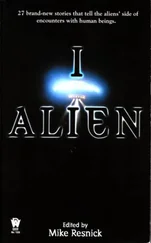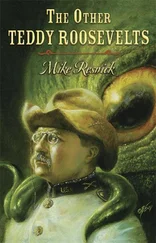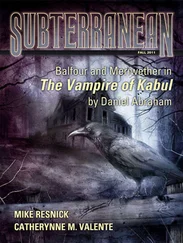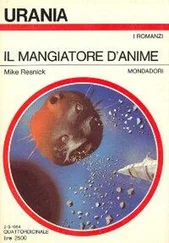Mike Resnick - Birthright
Здесь есть возможность читать онлайн «Mike Resnick - Birthright» весь текст электронной книги совершенно бесплатно (целиком полную версию без сокращений). В некоторых случаях можно слушать аудио, скачать через торрент в формате fb2 и присутствует краткое содержание. Жанр: Старинная литература, на английском языке. Описание произведения, (предисловие) а так же отзывы посетителей доступны на портале библиотеки ЛибКат.
- Название:Birthright
- Автор:
- Жанр:
- Год:неизвестен
- ISBN:нет данных
- Рейтинг книги:4 / 5. Голосов: 1
-
Избранное:Добавить в избранное
- Отзывы:
-
Ваша оценка:
- 80
- 1
- 2
- 3
- 4
- 5
Birthright: краткое содержание, описание и аннотация
Предлагаем к чтению аннотацию, описание, краткое содержание или предисловие (зависит от того, что написал сам автор книги «Birthright»). Если вы не нашли необходимую информацию о книге — напишите в комментариях, мы постараемся отыскать её.
Birthright — читать онлайн бесплатно полную книгу (весь текст) целиком
Ниже представлен текст книги, разбитый по страницам. Система сохранения места последней прочитанной страницы, позволяет с удобством читать онлайн бесплатно книгу «Birthright», без необходимости каждый раз заново искать на чём Вы остановились. Поставьте закладку, и сможете в любой момент перейти на страницу, на которой закончили чтение.
Интервал:
Закладка:
“I understand,” said Milnor. “If you could tell me what period you are most interested in, perhaps I could be of some assistance in directing you to the most likely places to begin your digging.” “That's very generous of you, Milnor,” said Breece, “but the truth of the matter is that I simply don't know where to begin. My race is dying, falling back on every front, losing everything it once held dear. I want to know why. I want to know what made us do it all in the first place, why we succeeded, why we failed. If you can point to a spot anywhere in the galaxy and say, ‘Dig there and you'll discover what it is that makes Man Man,’ I'll be forever in your debt. But I don't think you can do that, can you?” “Alas, I cannot,” said Milnor.
“Then I suppose I'll just have to proceed in my own haphazard way.” She turned her head into the mild breeze, breathed in the cold, clean air. “This very spot we're standing on might have been the Garden of Eden. I wonder if we'll ever know why Man wanted to leave it. He didn't slink out of Paradise, you know; he walked out proud and erect. Isn't that curious?” “You are not like most Men I have met,” said Milnor after a thoughtful pause. “There's a little of me in all Men, and a little of them in me,” said Breece. “I want to know. Isn't that the very trait that started Man on the path that led him to where he is now?” “Was it truly the urge to know?” asked the Rinn. “Or was it the drive to possess?” “I don't know,” said Breece with a shrug. “And yet, with all my race has done that I feel ashamed of, I can still feel pride at their accomplishments. From the Pioneers to the Olympians to the Warlords, they bucked the odds. Maybe they went places they had no business going, maybe they stepped on some toes—and far worse—but they won, and in a perverse way I'm proud to be one of them. Is that sinful, I wonder?”
“I cannot offer an answer,” said Milnor. “But let me in turn ask you one final question, and then I shall
leave you to the sleep you must need by now. Granting all that you have said is true to one degree or another, why is it that you are spending your life studying a species that we both admit is in its twilight? What will an understanding of Man's virtues and flaws and foibles benefit you?” “You mean me personally?”
The Rinn nodded.
“I'm not sure,” said Breece. “If I am to be totally honest about it, I could very well be doing this because I'm resentful.”
“Resentful?” asked Milnor. “Of what?”
“Of all the Men who lived during the zenith of our race. There was a time when we owned it all, and we let it slip away. Or, rather, they let it slip away. Maybe I'm bitter about their losing my birthright.” “Truly?” asked Milnor.
“Perhaps,” said Breece. “Or perhaps it's the feeling I get when I look out across the Serengeti, and see it as primitive Man must have seen it eons ago. But with one difference: his future, as a race, lay before him; mine lies behind me. I think it's very sad that nothing will ever grow here again except grass: no animals, no birds, and no Men.”
“To use an expression of your species, you weep for the passing of your race,” said the Rinn. “Is that not correct?”
“No,” said Breece. “First I want to know how and why it happened, what made it inevitable. Then I'll decide whether or not to shed a few tears. And now, if you'll excuse me, Milnor, I must get some sleep.” “I understand,” said the Rinn. “However if it will not offend you, I should like to present you with a gift.” “A gift?”
“Yes,” said Milnor. “It is a human artifact.” Suddenly her face radiated interest. “I think,” continued the Rinn, “that if you study it until you know it in its entirety, a number of your questions may be answered.” “I very much doubt that any one artifact can do that,” said Breece. “This one can,” said Milnor. He removed his shoulder pouch, stuck a stubby hand into it, searched around for a moment, and withdrew the artifact, which he rubbed carefully with a soft cloth and then handed to her.
It was a mirror.
24: THE PRIESTS
...About the middle of the Seventeenth Galactic Millennium, as the race of Man was in danger and disarray everywhere, there was a rebirth of interest in religion, though this incarnation had none of the trappings of Man's ancient, Earthbound religions. It was simple, straightforward, possessed of very few
dogmas, and was in truth far more of an ethical doctrine than a religion in the established sense of the
word.
One of the unsolved mysteries about Man is why, at a time when the comfort of religion should have been so avidly sought after, it should have flourished for so short a time and gained so few advocates.... — Origin and History of The Sentient Races, Vol. 9 It was a dirty little village, surrounded by scores of other dirty little villages, all of them standing out like leprous sores on the surface of Raxar II. Crumbling stone structures surrounded what had once been a city square, and in the middle of the square was a dust-covered fountain which had not operated in decades.
Mihal scurried along, looking neither right nor left, trying not to think of all the filth he would later have to remove from his robes. He carried a number of books in his left hand; in his right hand was a finely embroidered white handkerchief with which he was constantly mopping the sweat off his face. He longed for a cigar or a pipe, anything to keep his mind off the oppressive heat, but tobacco had been increasingly hard to come by in recent years, and since its cost had risen correspondingly with its scarcity, he had broken himself of the habit, though not the desire for it. A little girl peeked at him from behind a decrepit building, and he smiled at her. “Can you tell me where I can find Rodat?” he asked. She wiped a runny nose with an unwashed forearm, then pointed to a nearby structure. Just before she ducked out of sight he thanked her and approached the building. He looked for a door on which to knock, but could find none and, with a shrug, he walked inside. “Hello?” he said. “Is anybody home?”
“In here,” came a hoarse voice. He followed it and soon found himself in a small room. A number of insects were flying in and out through the holes where windows had once existed, and the heat grew even more unbearable, if possible. Sprawled on the floor atop an exceptionally grimy blanket was an old, emaciated, bearded man, whose age Mihal estimated at eighty or thereabouts. “I am Per Mihal,” said Mihal, trying to avert his eyes from the man's naked body. “A new one, eh?” said the man. “What happened to Per Lomil?” “He was transferred to Spica II,” said Mihal, mentally adding: Lucky devil! “And Per Degos?”
“Dead,” said Mihal. “You are Rodat?”
The man nodded, and was suddenly wracked by a coughing seizure. “This is my first day on Raxar II,” said Mihal when the man sank weakly back on the blanket, “but I'll be here for quite some time. I was told that...” He paused, searching for a delicate way to phrase it. “That I was dying?” asked Rodat. “Well, they told you rightly, priest. What can I do for you?” “For me ?” said Mihal in astonishment. “I am here to ease your suffering, to bring you peace and solace
in your ... ah ... last hours.”
“I'm good for three or four more days yet, priest,” said Rodat. “Don't go rushing me off before I'm good and ready to go.”
“That's quite all right,” said Mihal, seating himself on the floor beside the old man. “I'll stay right here with you to the end.”
“Going to give me a real good send-off, eh?” “View it as helping you prepare to be taken to the bosom of your Maker,” said Mihal. “Let Him wait until I'm good and ready,” said Rodat. “I'm in no hurry.” “I don't mean to be presumptuous,” said Mihal, “but I can't help thinking your attitude is all wrong. This is God you're talking about, not some landlord to be put off with a sneer. This is the Creator of all things, who is preparing to take you into His kingdom.” The old man stared at him for moment, then turned and spat on the rotting floor. “Priest,” he said at last, “you've got a lot to learn. I believe in the same God you do, and I believe in Him more devoutly than you do.”
Читать дальшеИнтервал:
Закладка:
Похожие книги на «Birthright»
Представляем Вашему вниманию похожие книги на «Birthright» списком для выбора. Мы отобрали схожую по названию и смыслу литературу в надежде предоставить читателям больше вариантов отыскать новые, интересные, ещё непрочитанные произведения.
Обсуждение, отзывы о книге «Birthright» и просто собственные мнения читателей. Оставьте ваши комментарии, напишите, что Вы думаете о произведении, его смысле или главных героях. Укажите что конкретно понравилось, а что нет, и почему Вы так считаете.











